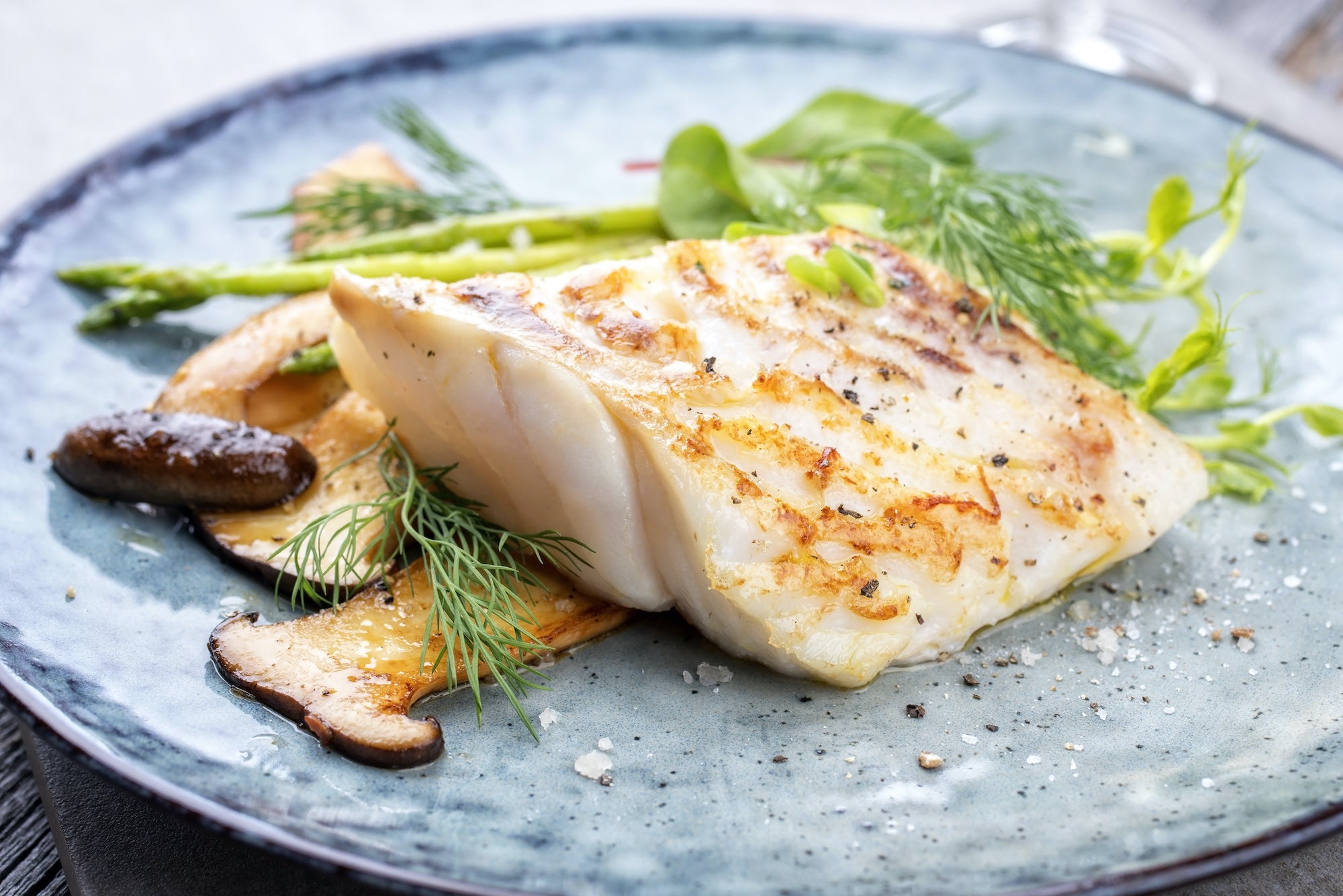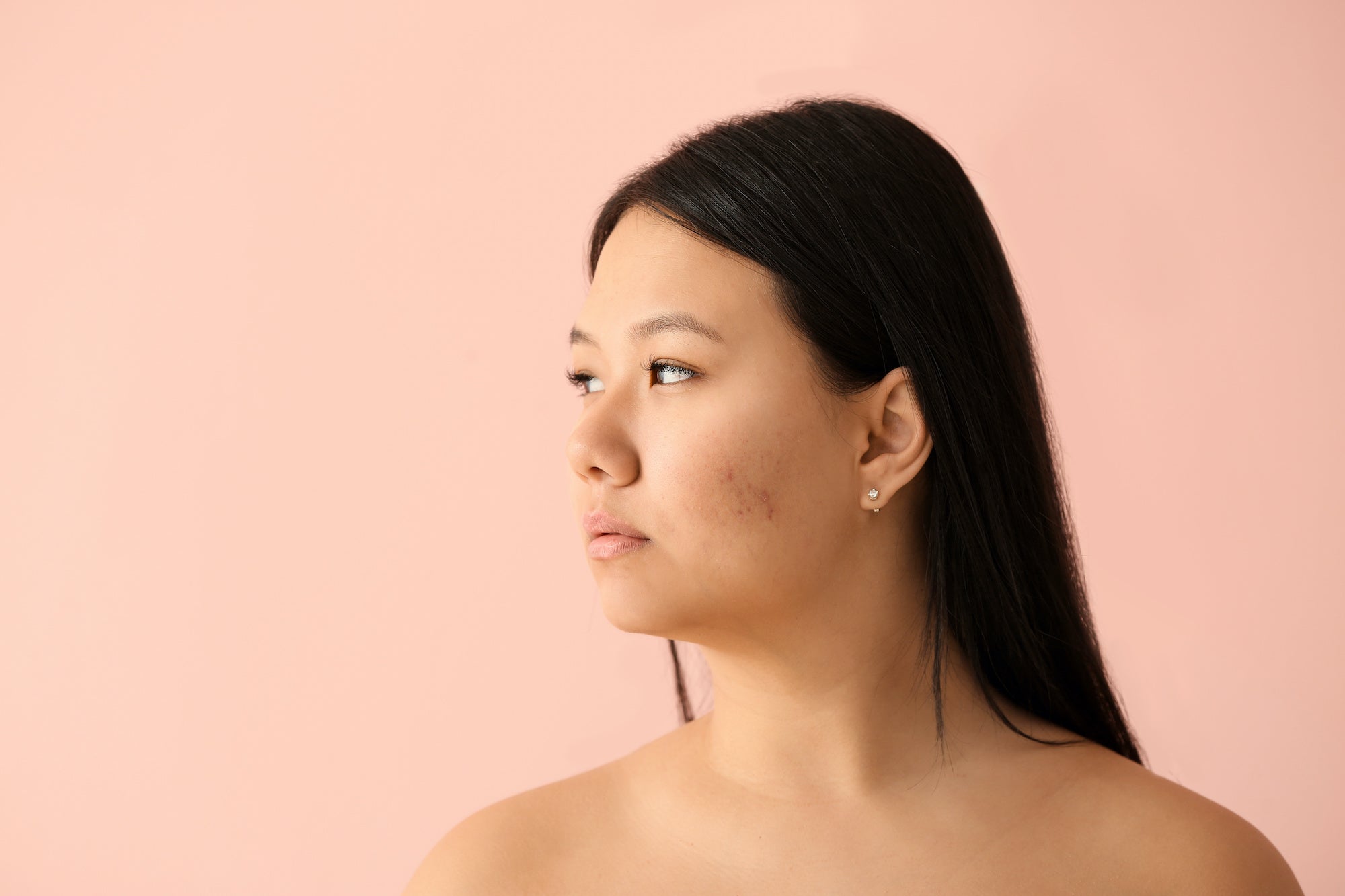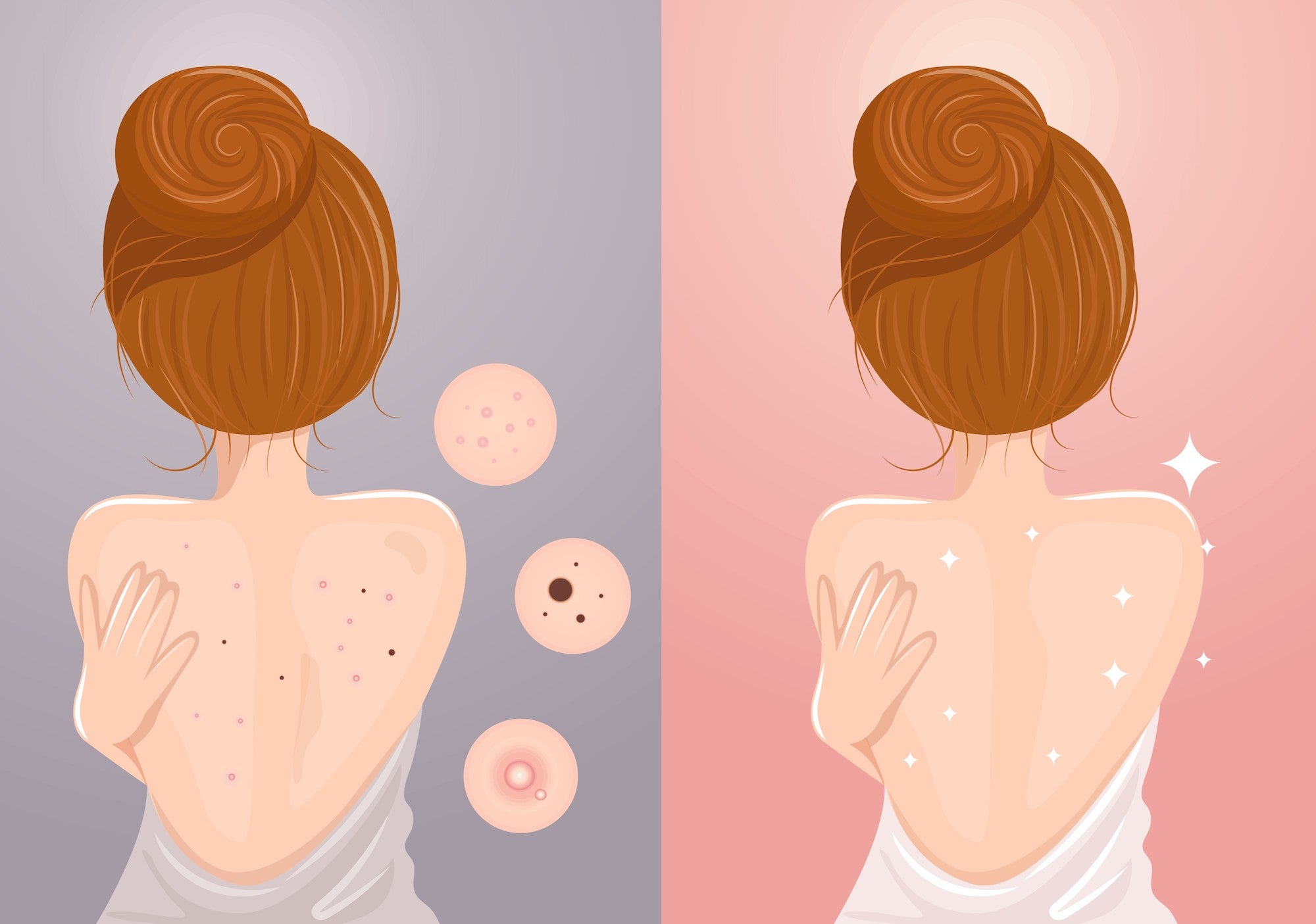
99 Best Foods for Clear Skin
Everyone is looking for that perfect combination of lifestyle changes to finally reach a glowing, healthy complexion.
You're lowering your stress through self-care. You're drinking your body weight in water. Maybe you've even found your holy grail skincare products and started to see results.
So why would you ignore something as fundamental as diet? The right mix of vitamins and nutrients can speed along your skin journey, supporting all the other hard work you’re putting in.
To make it even easier, we’ve compiled this list of the 99 best foods for clear skin, so you can quickly and confidently jump into more skin-friendly food habits.
Of course, these aren't the only foods you can eat. But try putting these options front and center, and complementing them with other ingredients in moderation. You'll be impressed with the results!
* Foods repeated in italics are MVPs with multiple skin-clearing nutrients.

Omega-3 Fatty Acids
Omega-3 fatty acids have all sorts of health benefits, and are called “essential fats.”
When it comes to your skin, the magic of omega-3 fats is their anti-inflammatory properties. This reduces puffiness and redness in the skin, which is especially useful for those of us with acne. Acne is an inflammatory condition, so reducing inflammation can reduce the duration and severity of breakouts.
The one downside? Our bodies don’t produce omega-3 fats on their own, so including omega-rich foods in your diet is extra important.
1. Salmon
2. Mackerel
3. Sardines
4. Avocado
5. Eggs
6. Soybeans
7. Tofu
8. Spinach
9. Kale
10. Navy beans
11. Grass-fed beef
12. Walnuts
13. Almonds
14. Flaxseeds
15. Mustard seeds
16. Wild rice
Vitamin A:
Vitamin A is popular in topical skincare products, often appearing as its alter-ego, retinol. But this vitamin is also important in our regular dietary intake.
First of all, vitamin A is an antioxidant, making it a great choice to fight off environmental damage and our skin’s arch-nemeses, free radicals.
Vitamin A deficiency may also cause hyperkeratinization in your pores, causing extra keratin to interfere with your skin cell turnover. The keratin binds your dead skin cells together and makes it difficult for your skin to shed, leading to an increase in pore blockages and acne breakouts.
Luckily, you can get all the vitamin A you need through foods like:
17. Broccoli
18. Sweet potatoes
19. Carrots
20. Oranges
21. Red bell peppers
22. Yellow bell peppers
23. Beef liver
24. Mango
25. Cantaloupe
26. Watermelon
27. Papaya
28. Apricot
29. Tangerine
Eggs
Spinach
Kale
Vitamin C:
Perhaps the most celebrated vitamin of them all, vitamin C is good for a lot more than just kicking that cold. For one thing, vitamin C is excellent for your skin.
Like vitamin A, vitamin C is an antioxidant, helping guard your skin against environmental stressors. Vitamin C also plays a vital role in the production of collagen, which helps keep you and your skin looking youthful. Vitamin C can even help repair existing dryness and skin damage, heal wounds, minimize scarring, and reduce wrinkles.
Best of all, vitamin C is easy to include in your diet, as it’s present in many popular foods.
30. Lemon
31. Grapefruit
32. Kiwi
33. Cauliflower
34. Tomatoes
35. Pomegranate
36. Strawberries
Oranges
Papaya
Red bell peppers
Yellow bell peppers
Sweet potatoes
Broccoli
Vitamin C is also a powerful topical ingredient. That's why our Luminous Complexion Toner includes Kakadu plum, the world's richest natural source of vitamin C.
Vitamin D:
Vitamin D can help manage inflammation and regulate skin cell turnover. This is a significant advantage for acne sufferers, as inflammation and overproduction of skin cells are two contributing factors for your breakouts.
Many people think that vitamin D must be absorbed through sunlight. But while this is certainly one way to meet your quota, vitamin D is also available through many foods.
37. Cod (esp. Cod liver oil)
38. Herring
39. Swordfish
40. Tuna
41. Maitake mushrooms
42. Shiitake mushrooms
Beef liver
Salmon
Sardines

Vitamin E:
Vitamin E is one of the greatest nutrient allies for your skin. Like vitamins A and C, vitamin E is an antioxidant, protecting your skin against UV radiation and helping prevent dark spots and wrinkles. That’s why it's common in so many topical anti-aging products.
Vitamin E can also help with inflammation, such as the swelling of puffy under-eye circles or angry red acne.
As a natural component in sebum, the oil produced by our skin, it may also help with dry, flaky complexions. Vitamin E is even being explored as a treatment for psoriasis and eczema.
As for food sources, vitamin E is particularly concentrated in nuts and cooking oils. You can find it in ingredients like:
43. Extra virgin olive oil (especially cold-pressed)
44. Sunflower Seeds
45. Peanuts
46. Grapeseed oil
47. Safflower oil
48. Swiss chard
49. Butternut squash
50. Trout
Avocados (and avocado oil)
Almonds
Spinach
Zinc:
Zinc isn’t the most talked-about nutrient. But actually, it’s one of the most studied treatments for acne and other inflammatory skin conditions, from eczema to rosacea.
Zinc is an anti-inflammatory, helping reduce swelling and irritation. It also fights viruses and bacteria, making it potentially helpful for clearing and preventing breakouts. As an antioxidant, it helps protect your skin from environmental damage, and it may even help reduce acne scarring.
Because zinc studies are still trying to establish the ideal topical treatment, right now dietary intake is the best way to ensure your zinc levels are up to snuff. Look for zinc in:
51. Oysters
52. Crab
53. Clams
54. Lobster
55. Mussels
56. Chickpeas
57. Lentils
58. Cashews
59. Pumpkin seeds
60. Dark chocolate
Broccoli
Walnuts
Selenium:
The antioxidant selenium is another nutrient that can protect your skin from the dangers of environmental exposure, such as UV radiation. It’s also considered a necessary nutrient for healthy skin, as selenium deficiency can lead to some dangerous conditions and skin abnormalities.
Fortunately, healthy selenium levels don’t require a lot of special maintenance or extra supplements. You can consume plenty of selenium through the following:
61. Brazil nuts
62. Halibut
63. Snapper
64. Shrimp
65. Cottage cheese
Walnuts
Salmon
Tuna
Sardines
Oysters
Clams
Other antioxidants:
We’ve talked a lot about antioxidants so far — like vitamins A, C, and E, not to mention zinc and selenium. But these are only the tip of the iceberg. Many other antioxidants also help guard your complexion against radiation and environmental damage.
You don’t need to memorize all their names, thank goodness. You can add more skin-defending antioxidants to your diet simply by targeting these foods:
66. Green tea
67. Red grapes
68. Blueberries
69. Blackberries
70. Cherries
71. Goji berries
72. Cranberries
73. Turmeric
Dark chocolate
Kale
Spinach
Pomegranate

Probiotics:
You may know probiotics as good bacteria to help your digestion. What’s that got to do with clear skin? Due to a phenomenon known as the gut-brain-skin axis, a lot of our physical health can be tied back to the conditions in our digestive tract, including the health of our skin.
An unhealthy gut can have a significant impact on the presence and severity of acne. One factor is a link between imbalanced digestive bacteria and insulin resistance, which can lead to severe breakouts. On the flip side, good digestive health can help relieve inflammation, easing the redness and puffiness of acne.
So what’s the best way to help balance your gut (and thereby, your skin)? Probiotics. Find them in:
74. Kombucha
75. Sauerkraut
76. Anything pickled
77. Yogurt with live active cultures
78. Kefir
79. Miso
Prebiotic fiber:
Like similar-sounding probiotics, prebiotic fiber helps improve the health and clarity of your skin by first improving the health and efficiency of your gut.
Prebiotic fiber supports the good bacteria in probiotics, helping them thrive and multiply. So including prebiotic fiber in your diet will make your probiotics work harder, better, faster, and stronger. You can consume prebiotic fiber with a nice helping of:
80. Garlic
81. Leeks
82. Dandelion greens
83. Asparagus
84. Chicory
85. Jerusalem artichokes
86. Onions
87. Bananas
88. Barley
89. Oats
90. Apples
91. Jicama
92. Seaweed
Non-dairy swaps:
We’ve talked before about the potentially acne-inducing effects of dairy, specifically milk. If you’re concerned that milk is contributing to your skin woes, try some of these non-dairy alternatives.
93. Coconut milk
94. Oat milk
95. Almond milk
96. Hazelnut milk
97. Cashew milk
(Some sources recommend against nut milk, suggesting that their Omega-6 levels can contribute to inflammation. However recent research debunks this claim. Just be sure you’re also getting enough Omega-3 so that these healthy nutrients are well-balanced!)
Protein:
If your skin problems cause significant scarring or damage — say, from conditions like cystic acne — then your body is not only fighting the breakouts but is also trying to heal and rebuild your skin. This is where protein comes in.
Protein is essential for wounds to repair themselves, including damage on the surface of your skin. To speed along recovery and lessen your chances of scarring, lean proteins can be a great help. Top choices include:
98. Whey protein powder
99. Chicken
Tuna
Yogurt
Eggs

What to Do Next? Try Averr Aglow’s Clear Skin Kit
Tired of feeling lost and confused about what you should do to get clear, smooth skin? Order the Clear Skin Kit.
The Clear Skin Kit contains products specially crafted with the perfect blend of natural ingredients that help soothe and calm red, irritated skin while also clearing up breakouts. If you struggle with sensitive acne/breakout-prone skin, hormonal acne, cystic acne, or rosacea, then you’ll be happy you found this complete routine.
Please understand, that results may vary, we’re not selling you a miracle product and would never try to position or state that you will get a true result in only a few days. In our clinical trials, most users found the most results at the 30-day and then the 56-day mark by sticking with our routine.
What is Averr Aglow®?
Averr means Truth. We have pioneered a revolutionary no-rinse cleansing routine specifically tailored to address problematic skin issues.
Hi, I’m Camille, founder of Averr Aglow, and I help adult women who are battling breakouts and acne get clear skin results like they have never seen before, even if nothing has worked for them in the past.
After battling breakouts for over 16 years, trying every skincare product under the sun, and visiting countless professionals like dermatologists, nutritionists, and hormonal doctors, I finally learned why nothing seemed to work on clearing up my skin, what truly causes breakouts and acne, and EXACTLY what to do to get clear skin results – and I want to help you do the same.
Let me help you! Read my full testimonial here.






